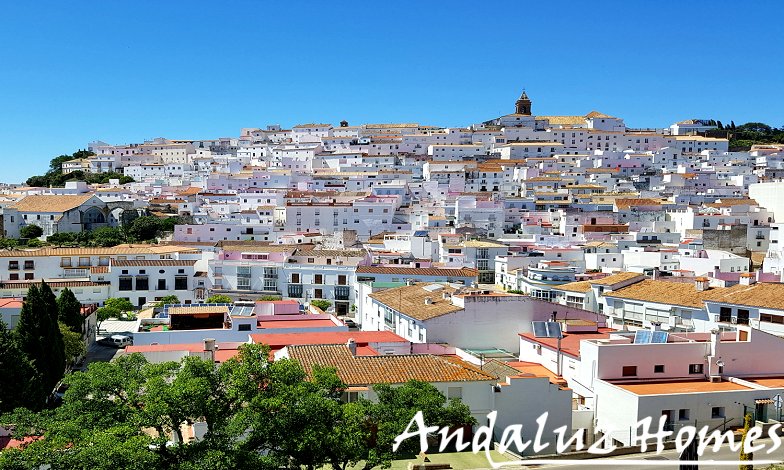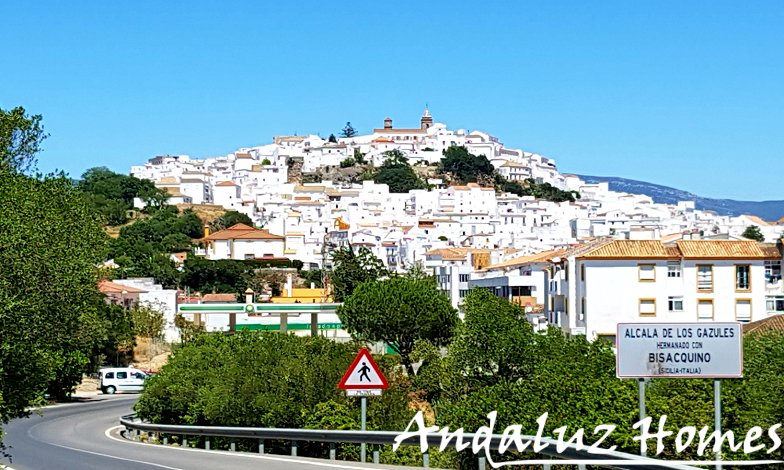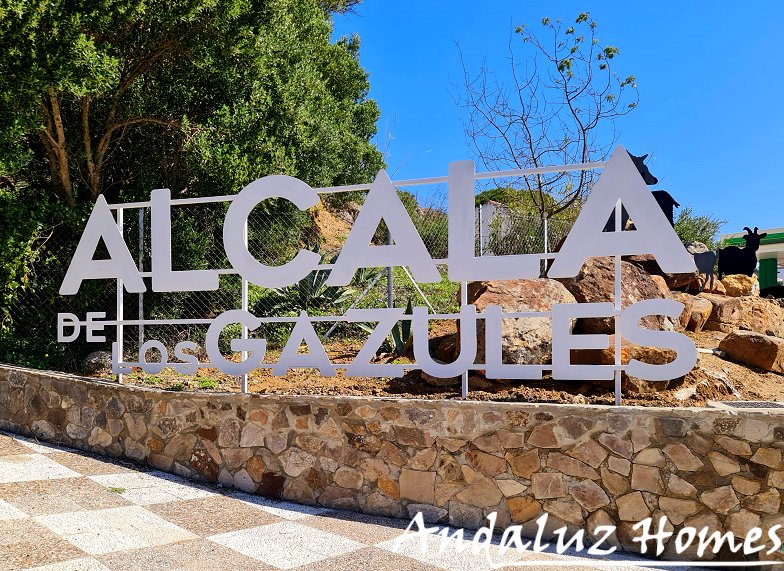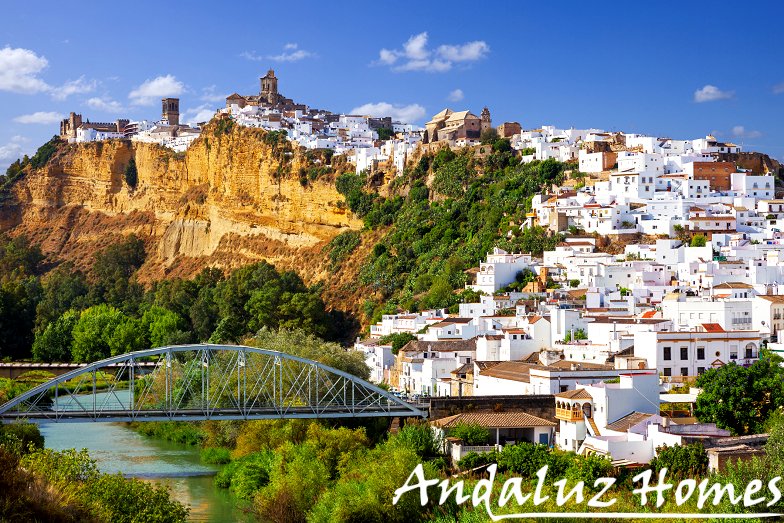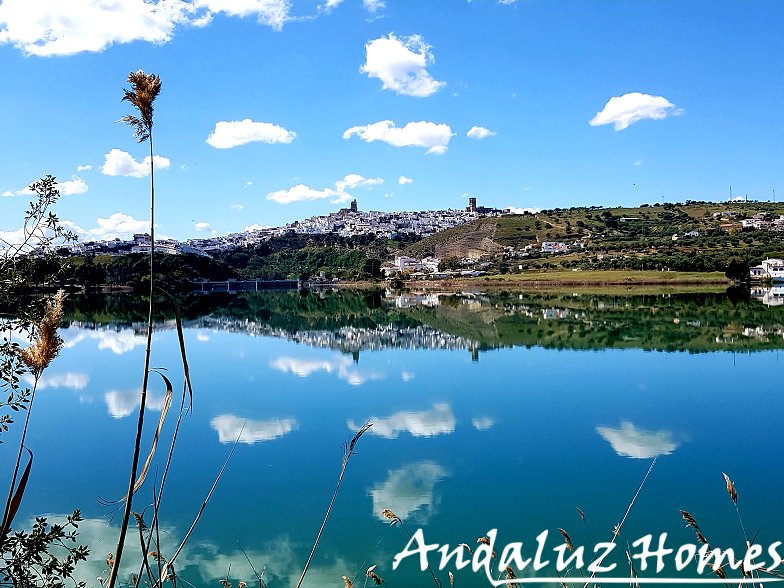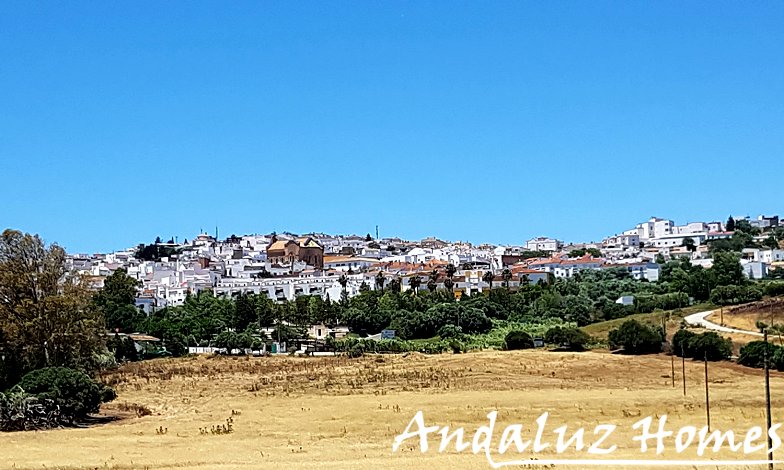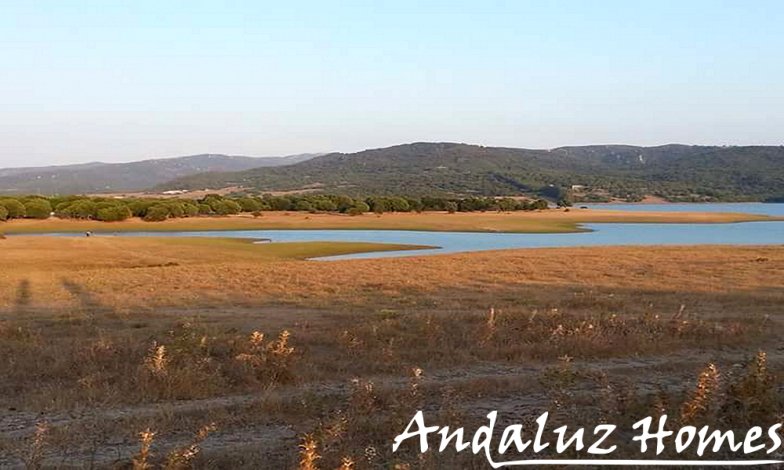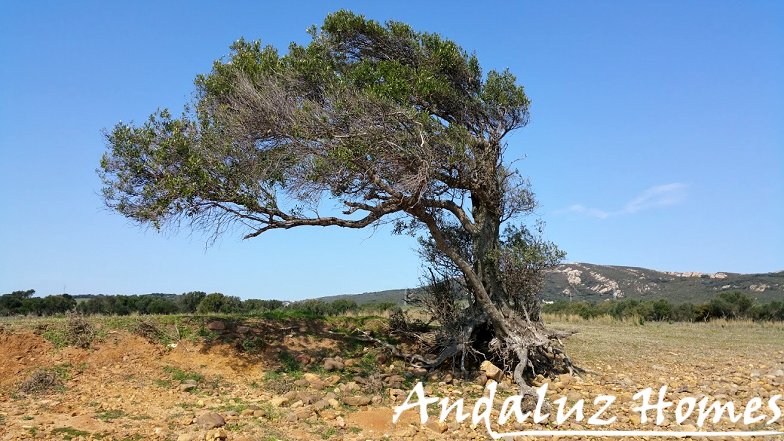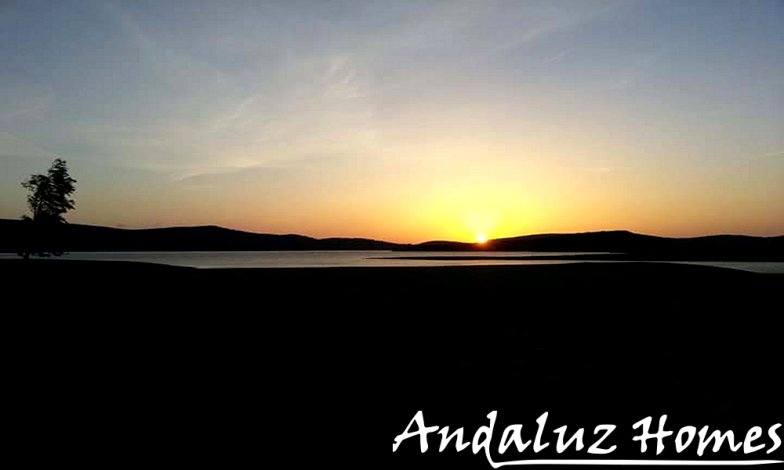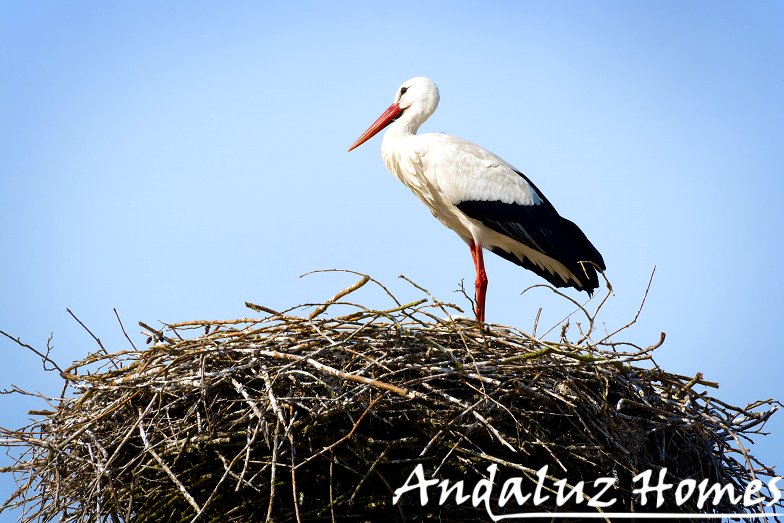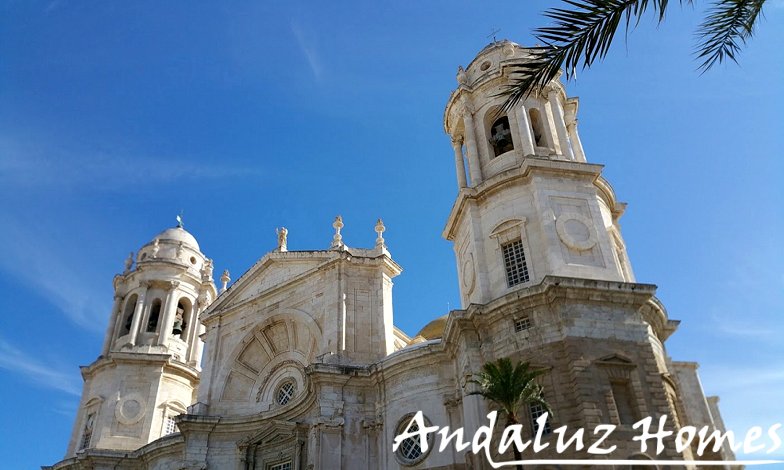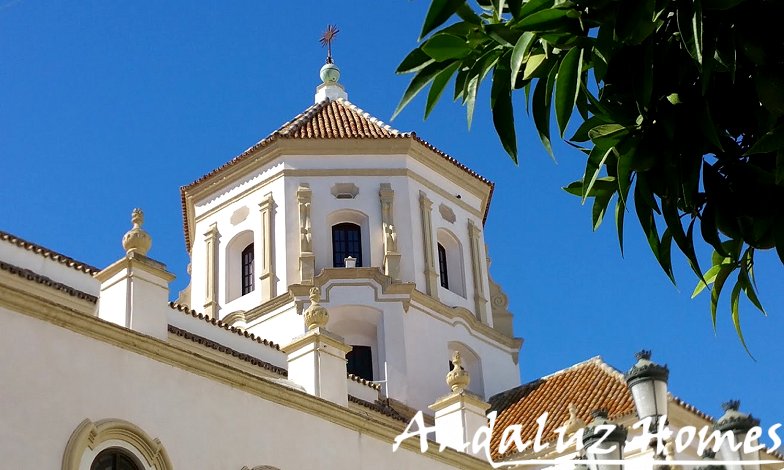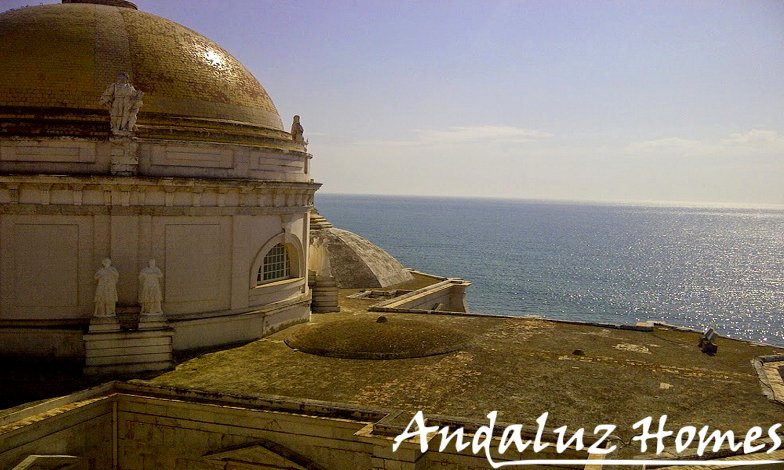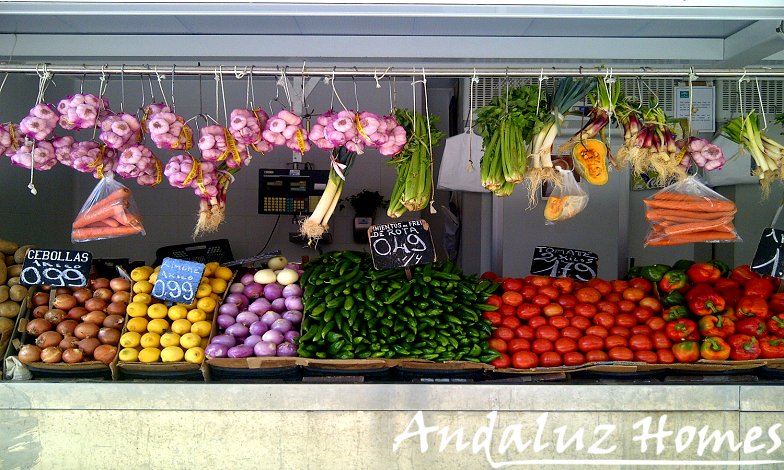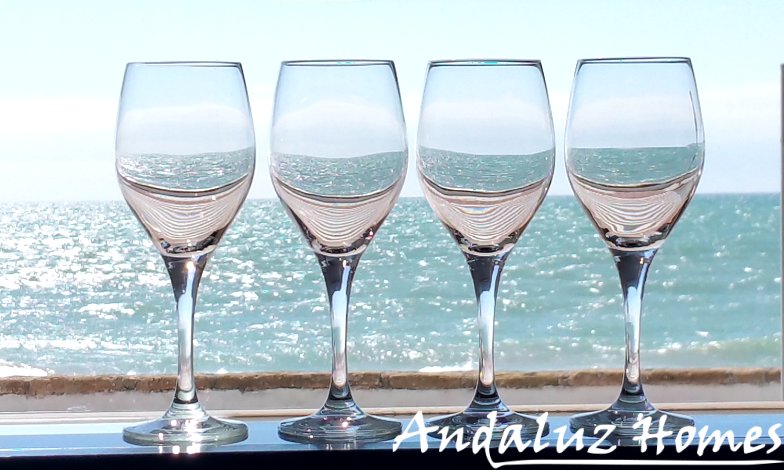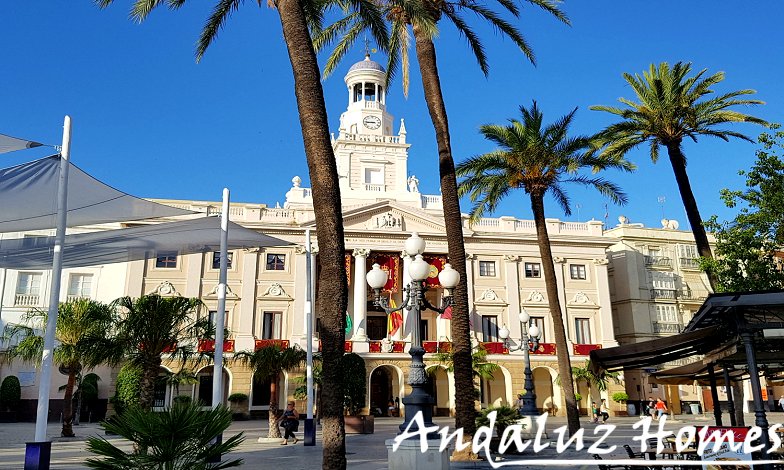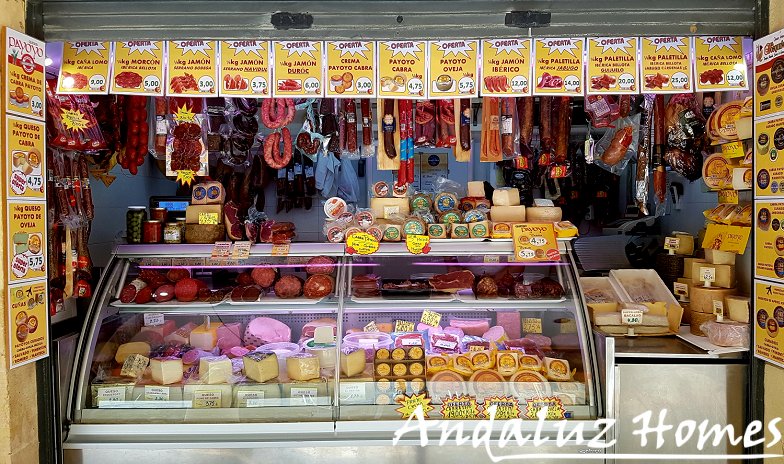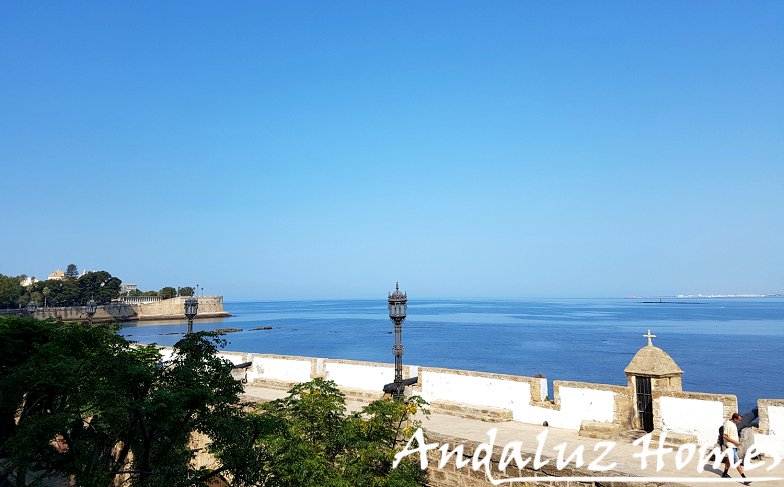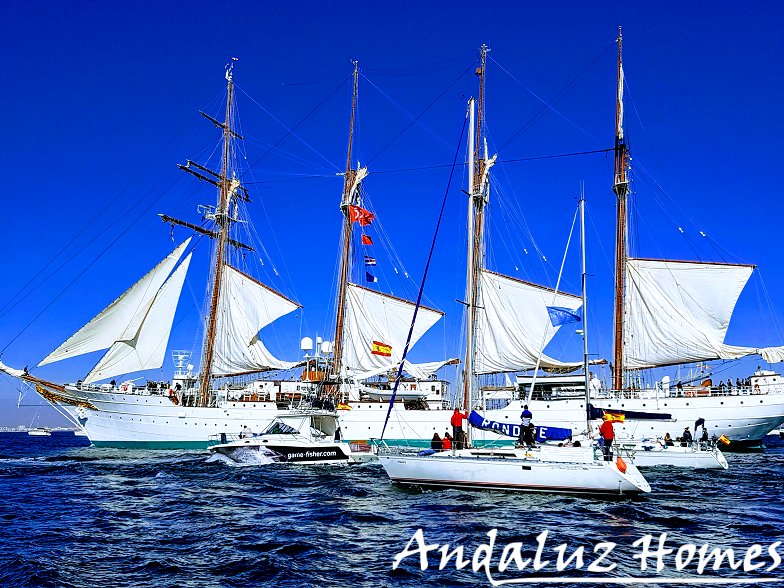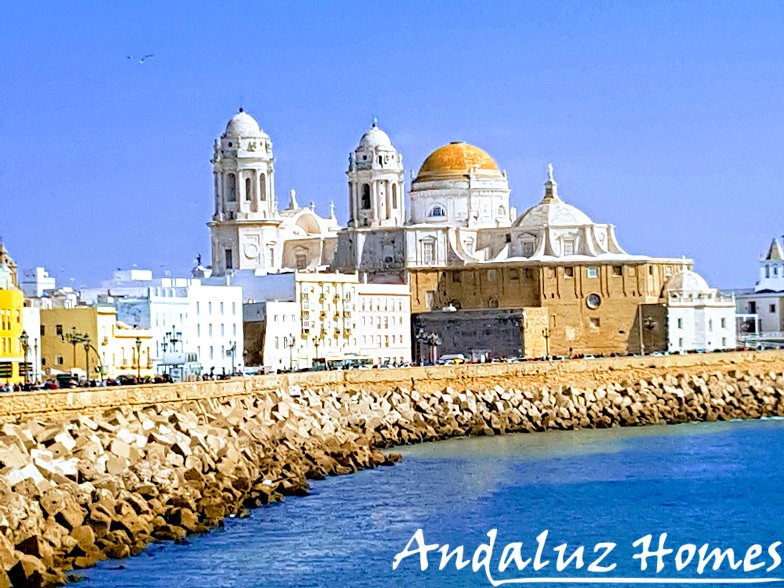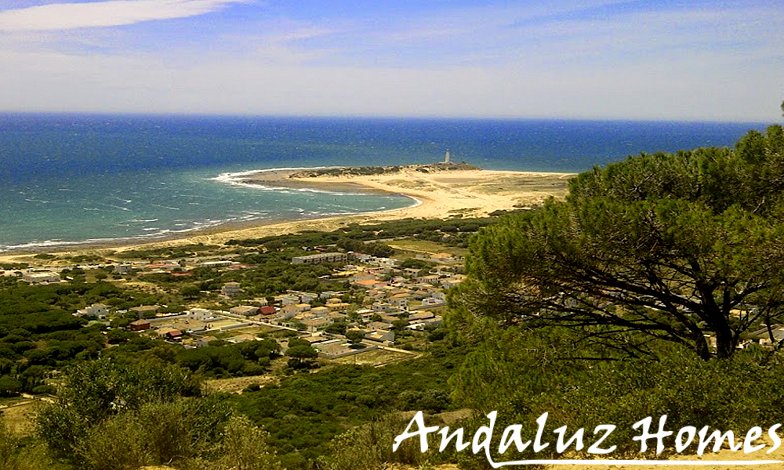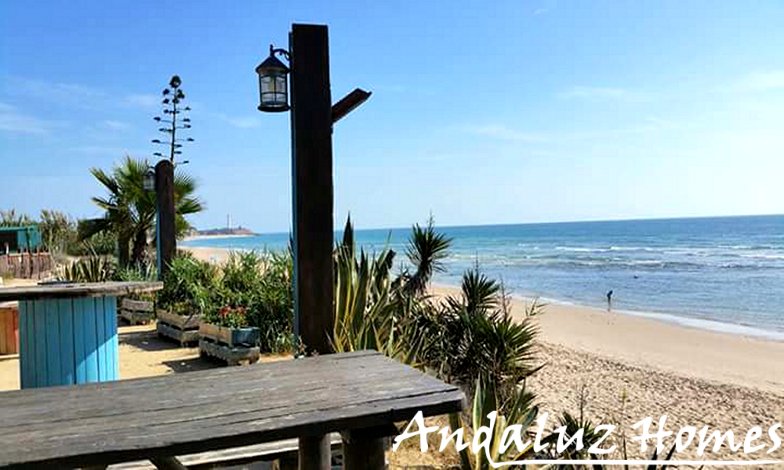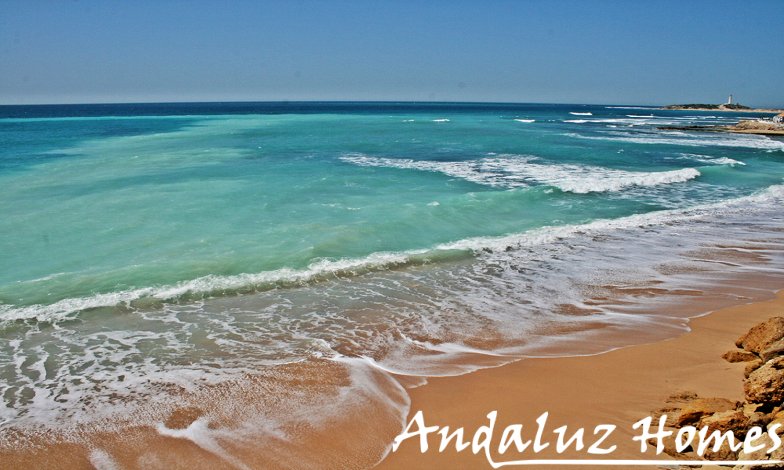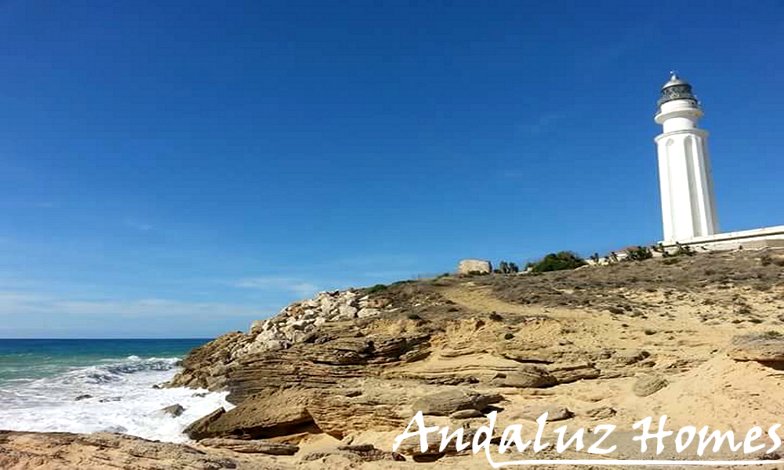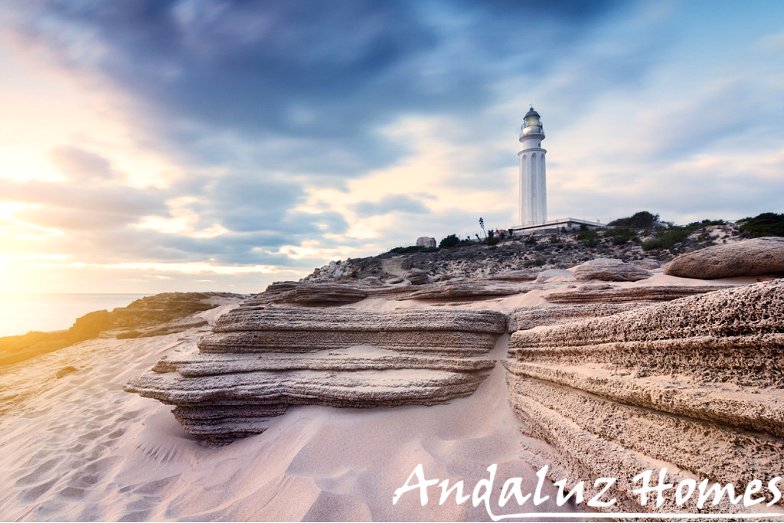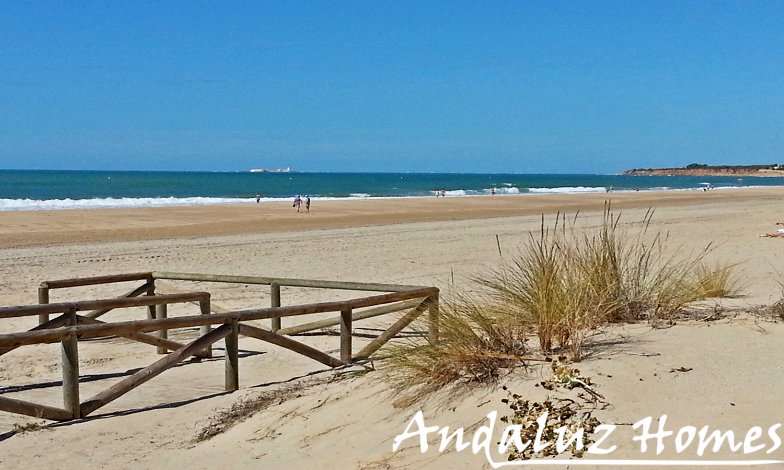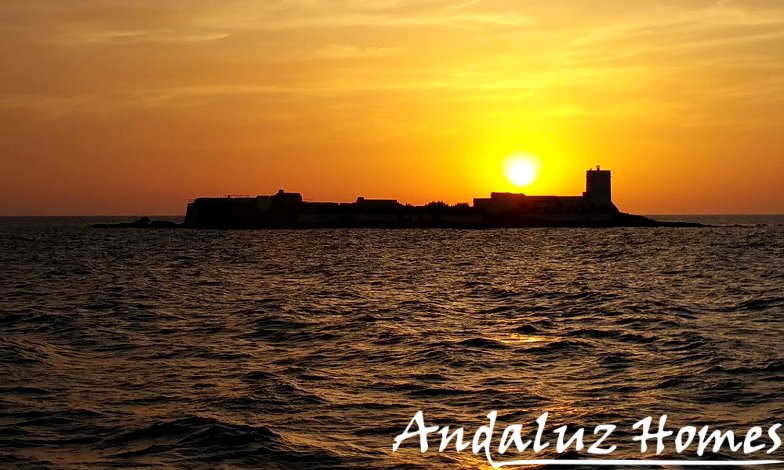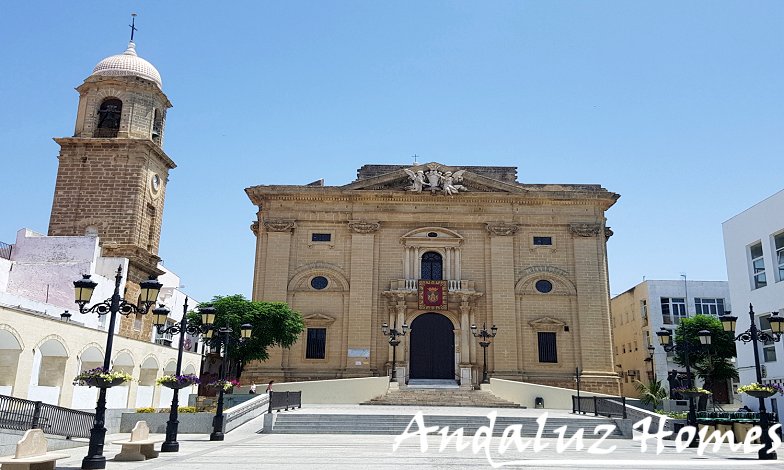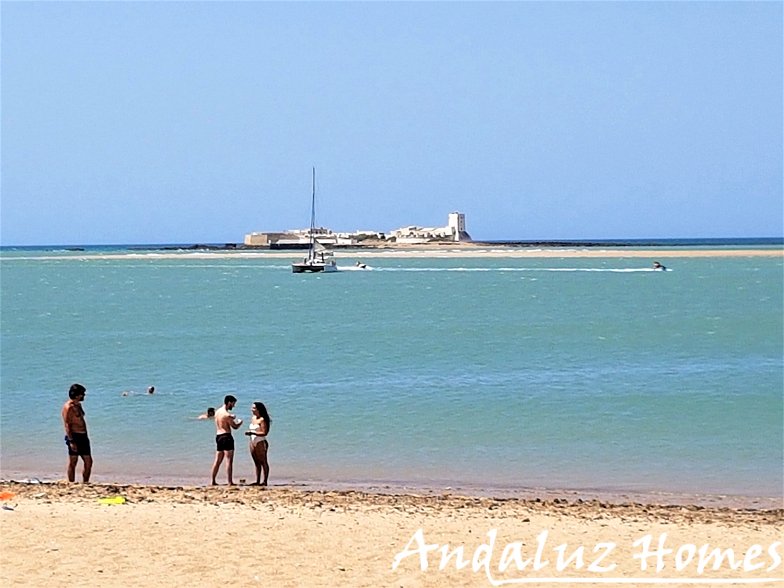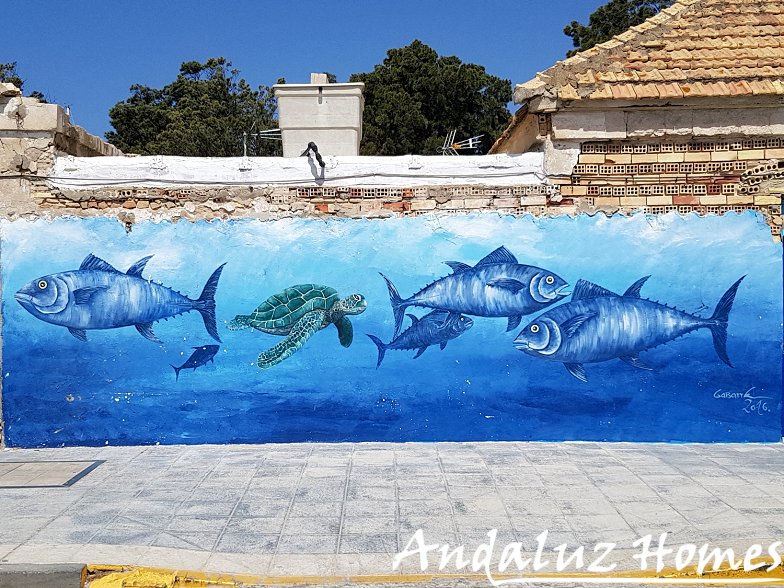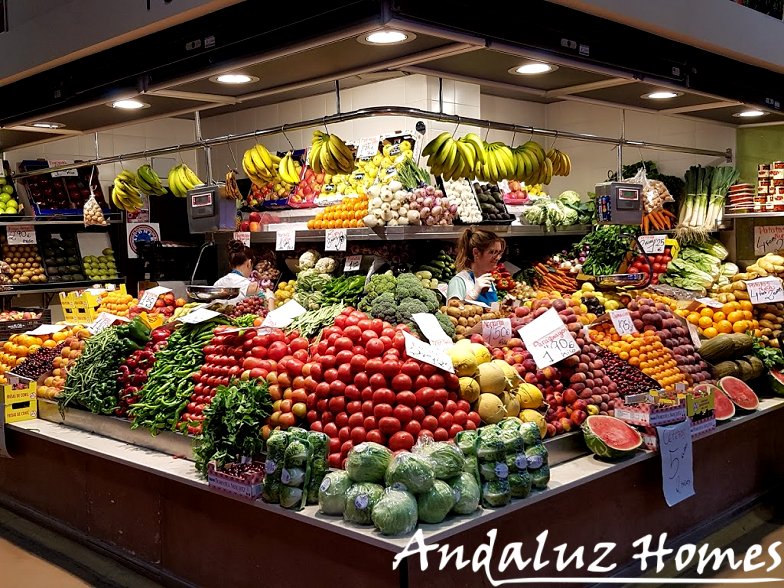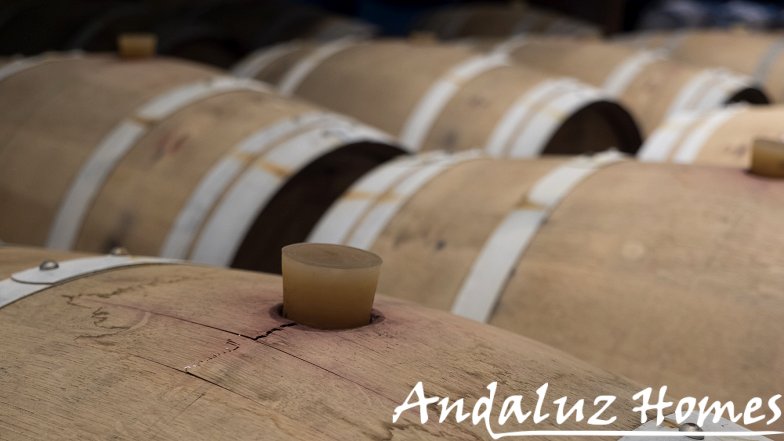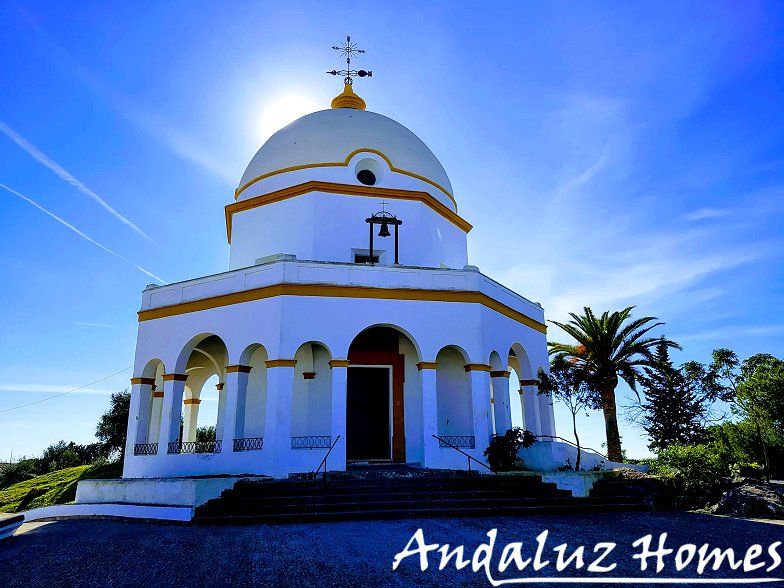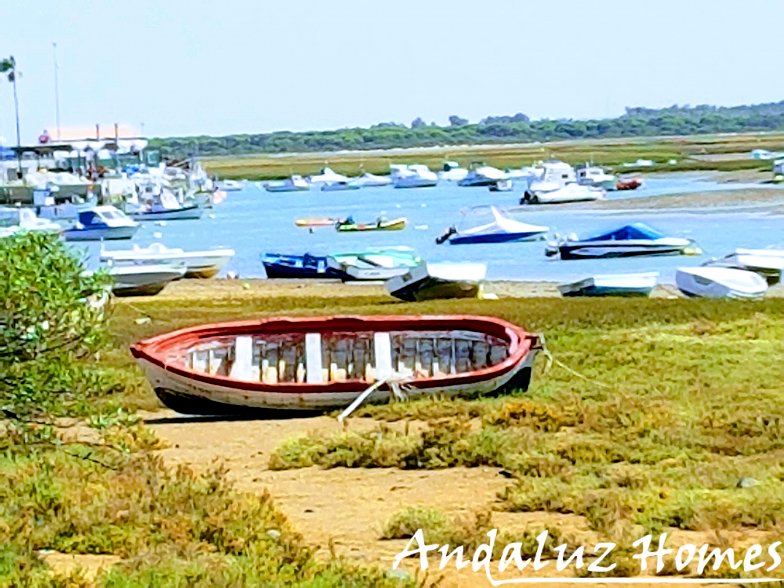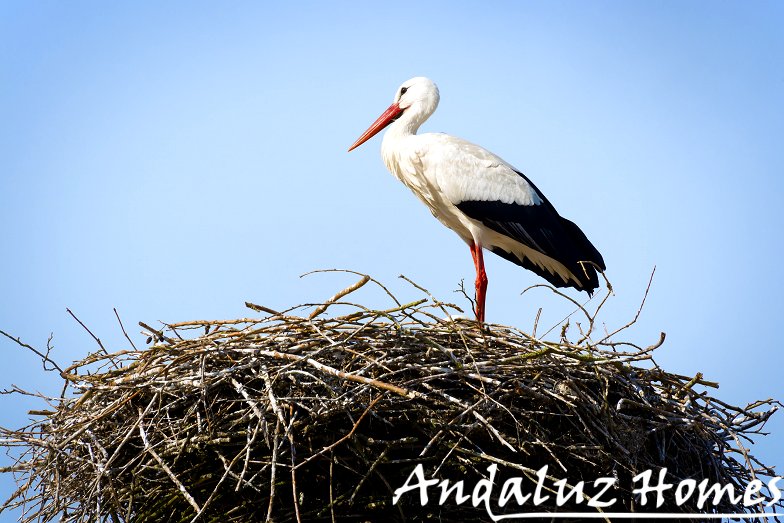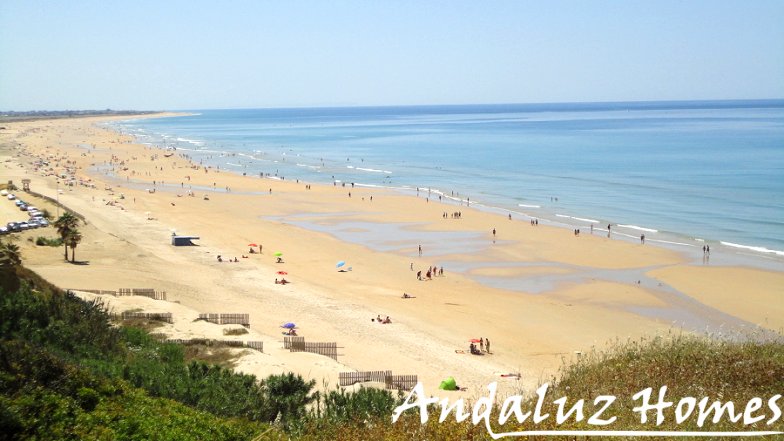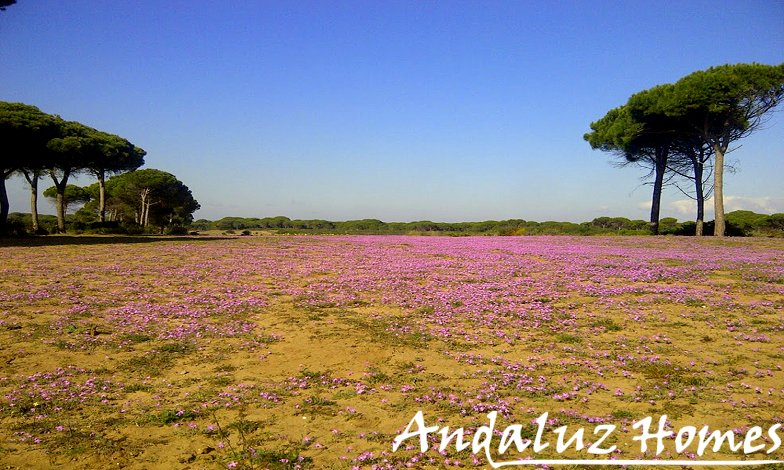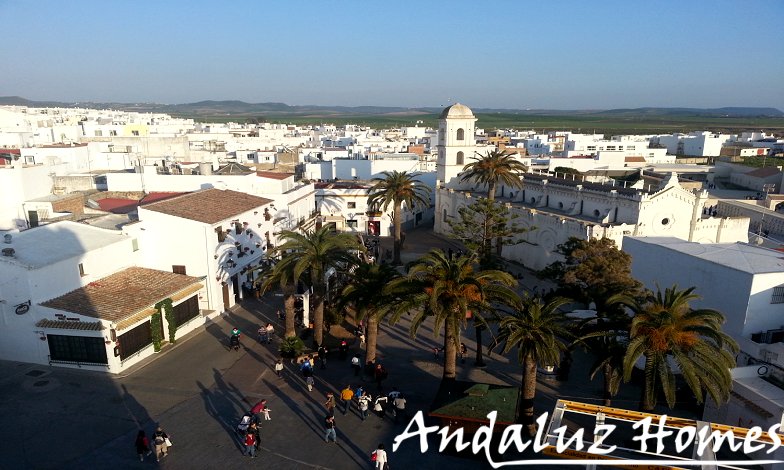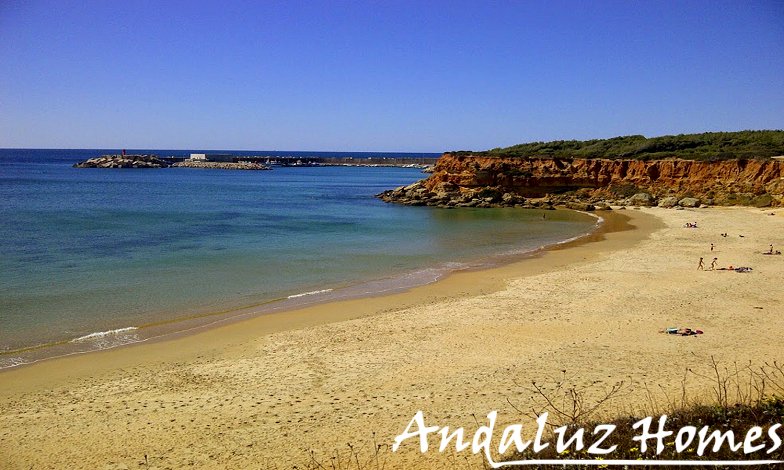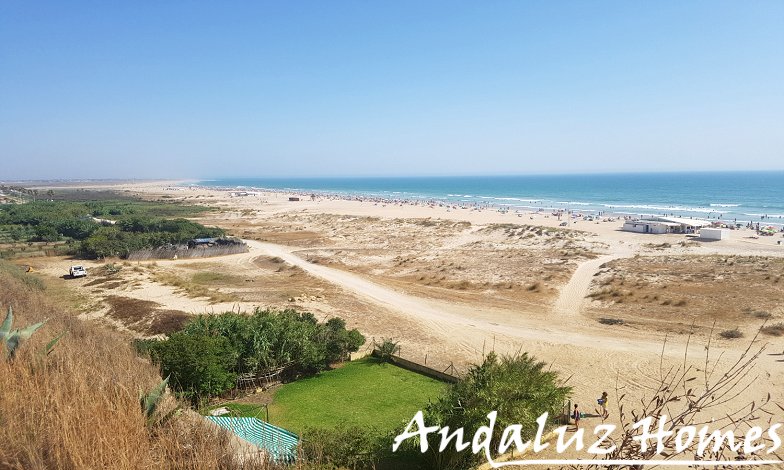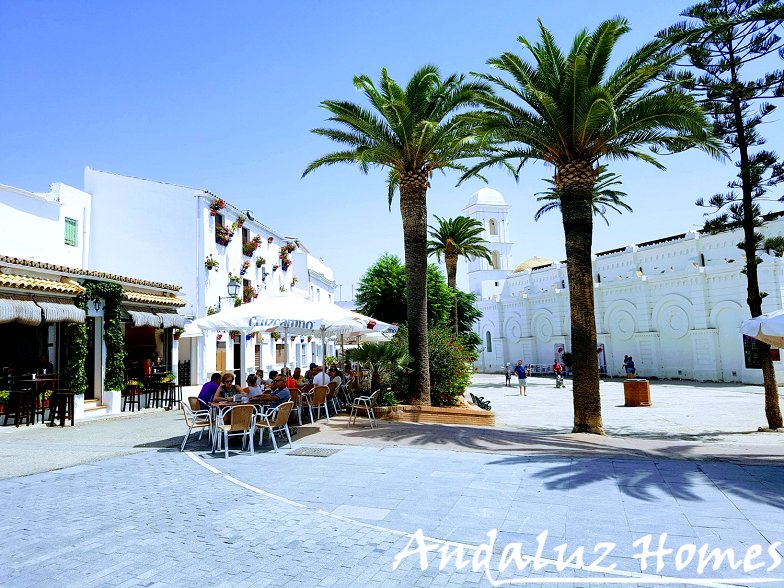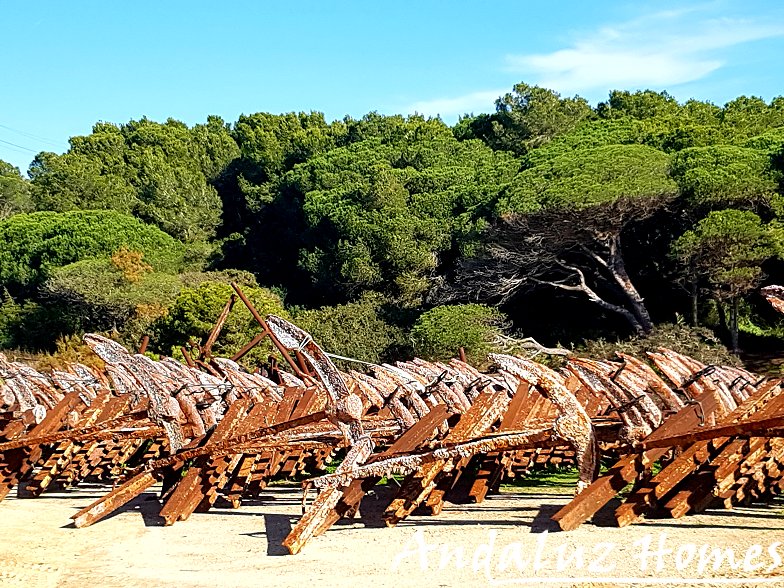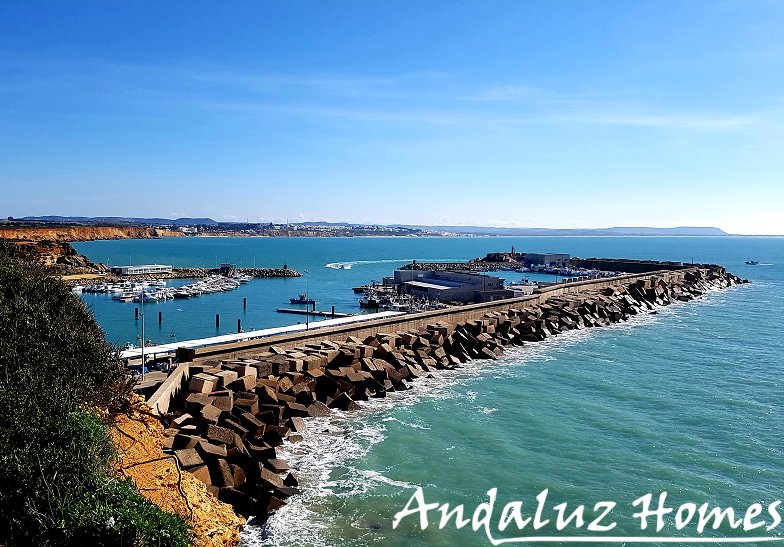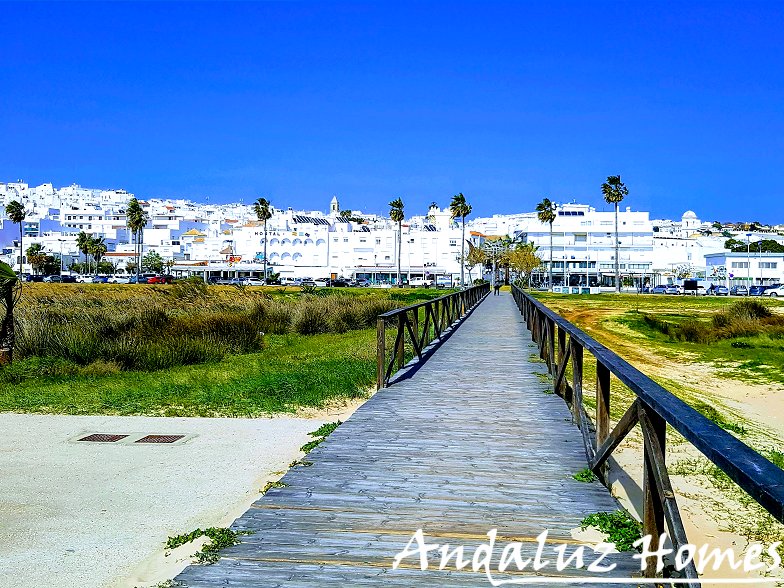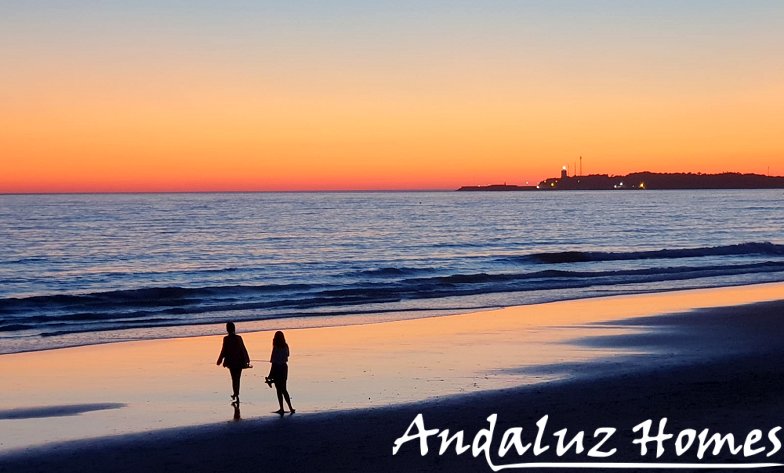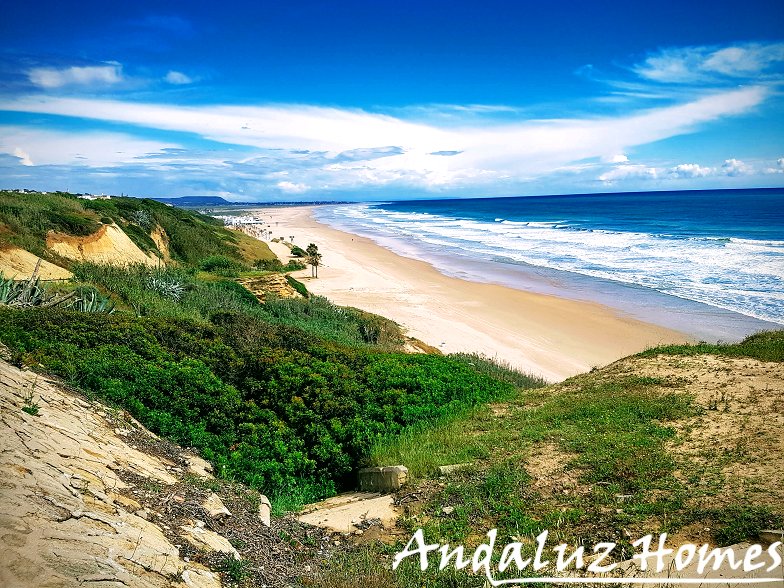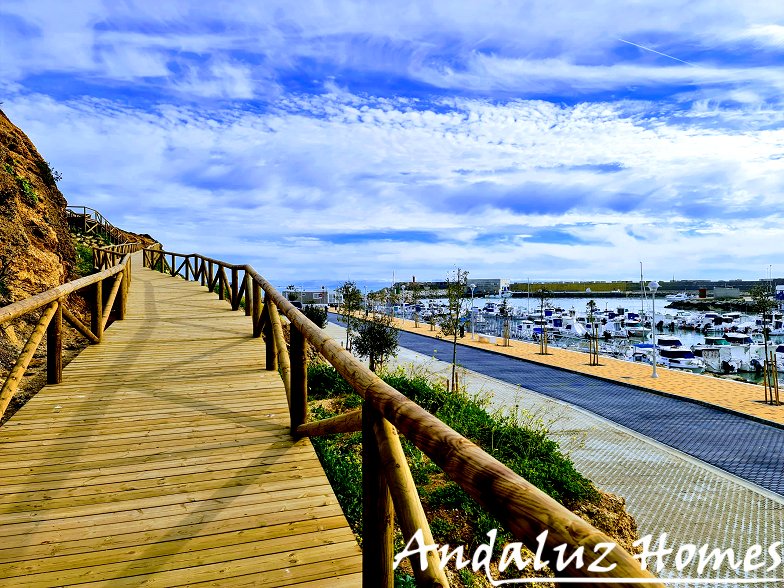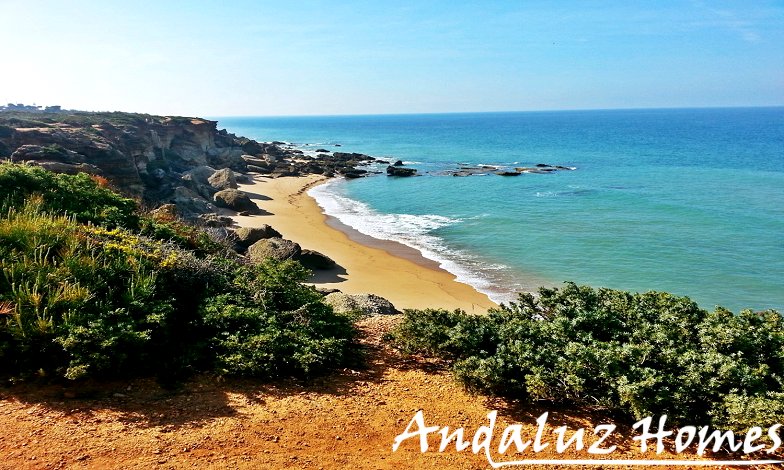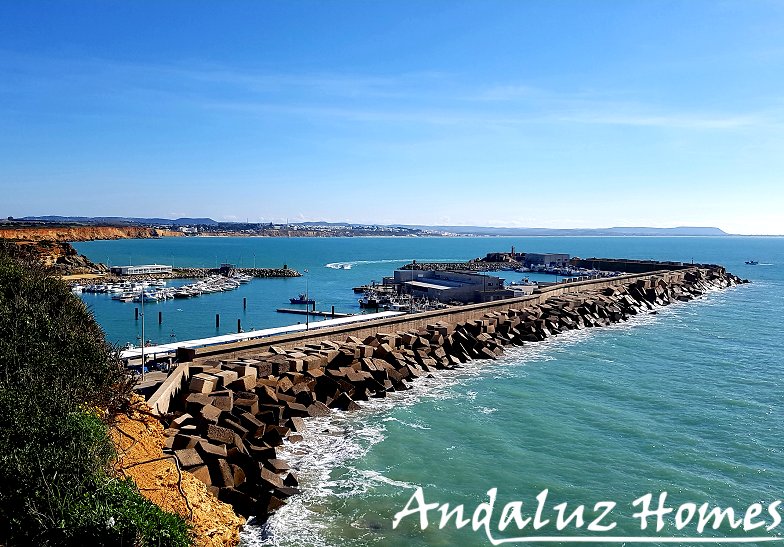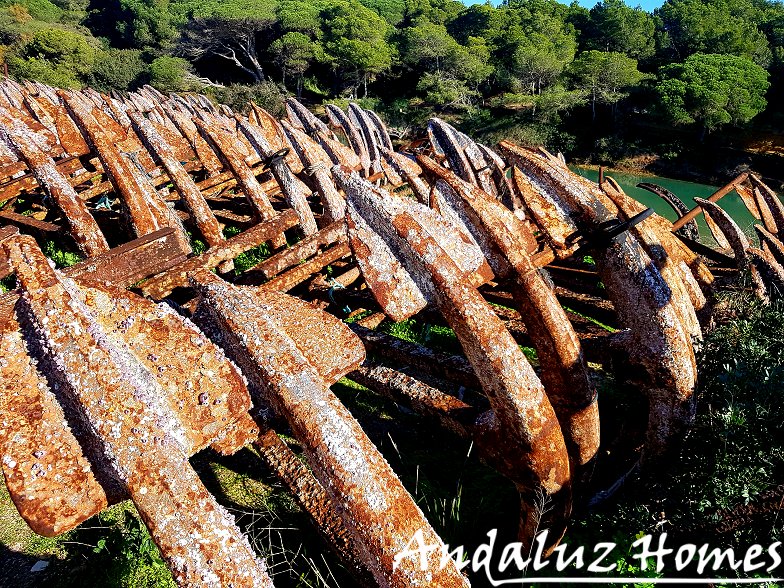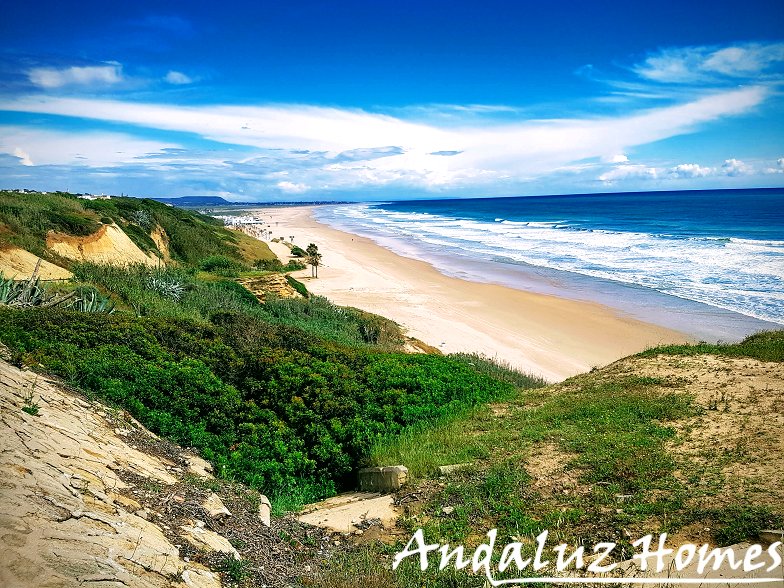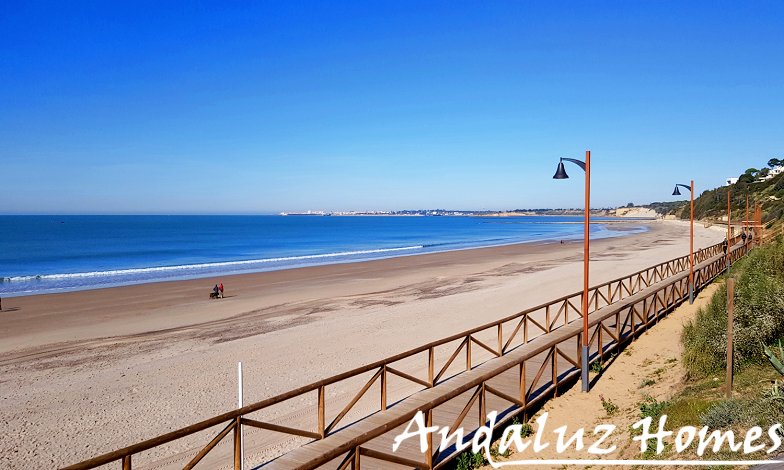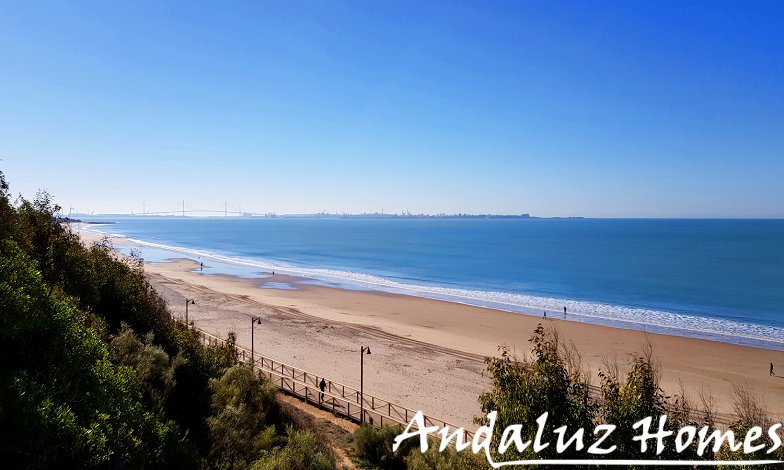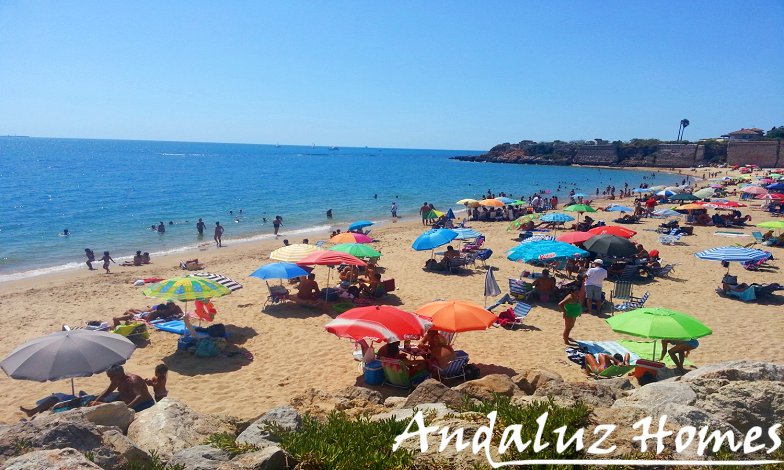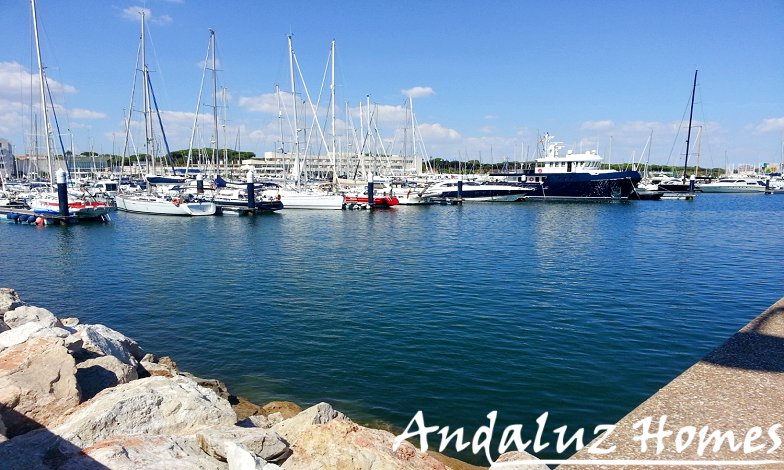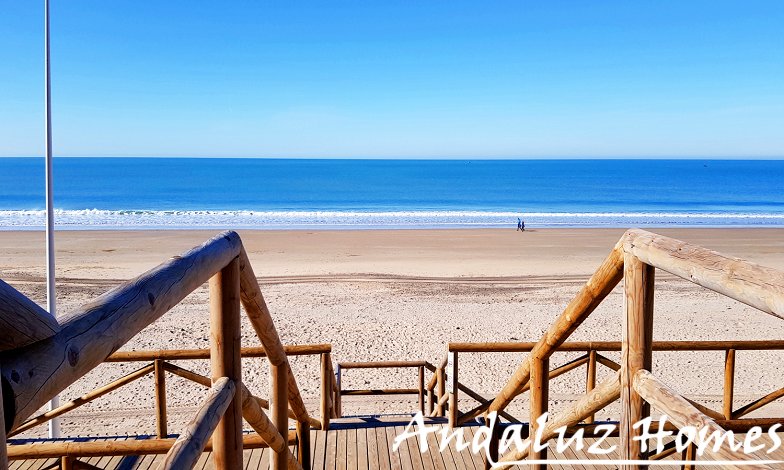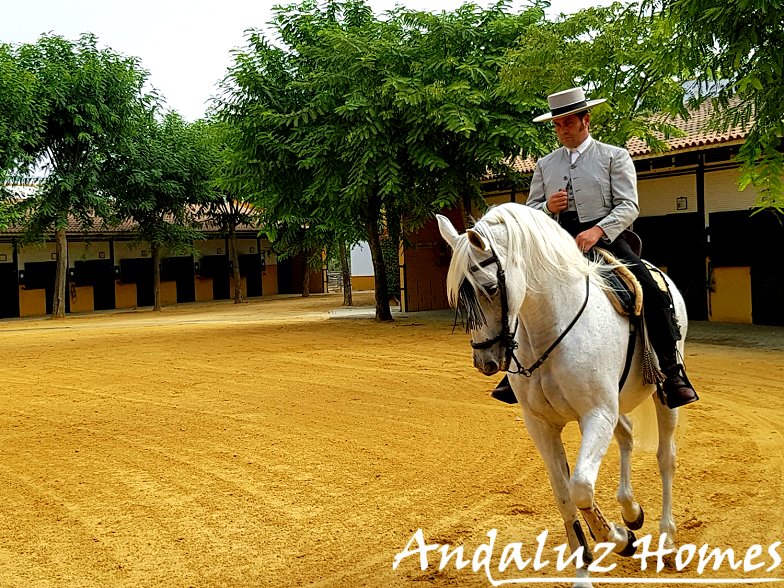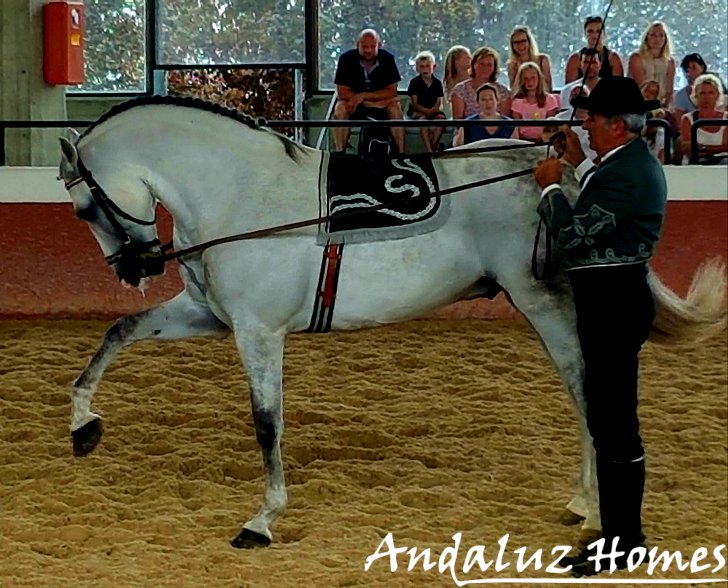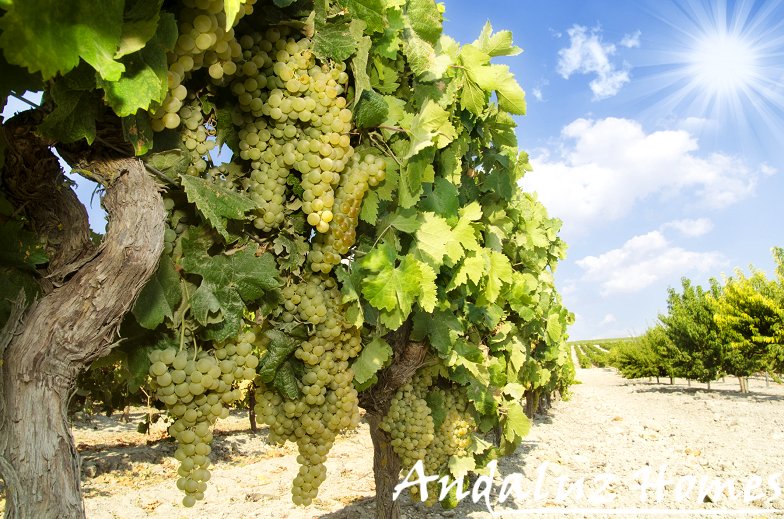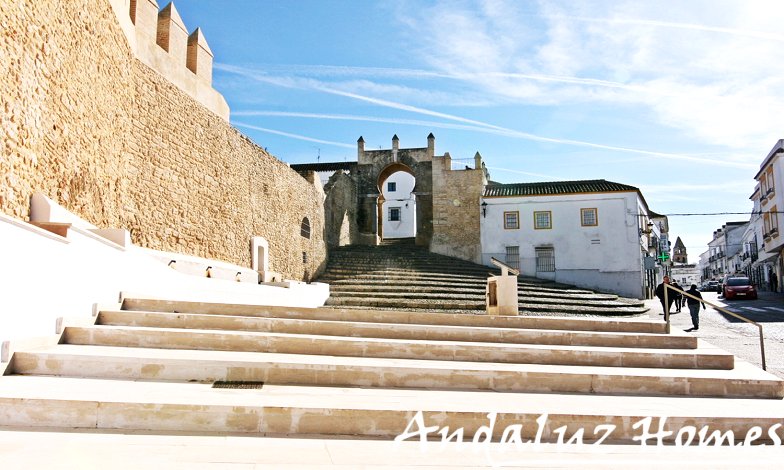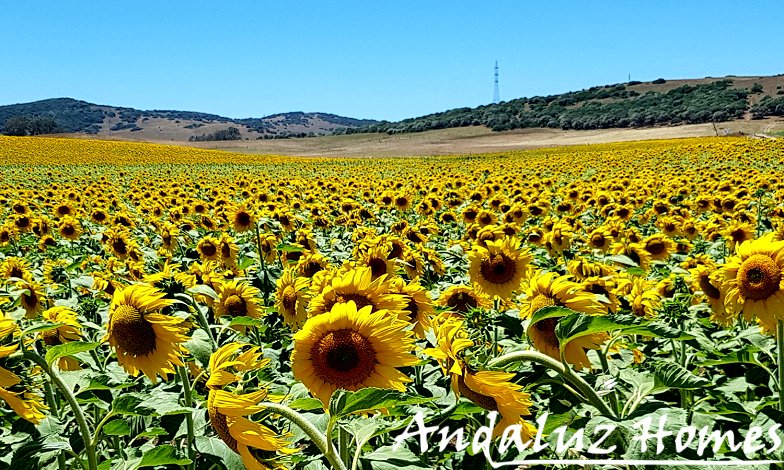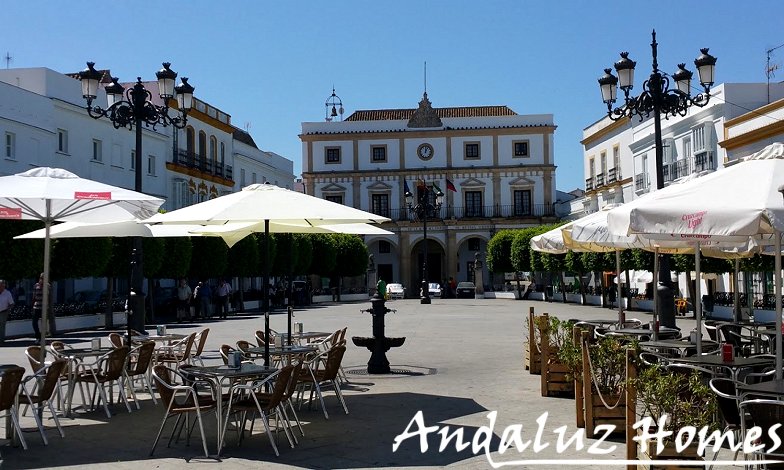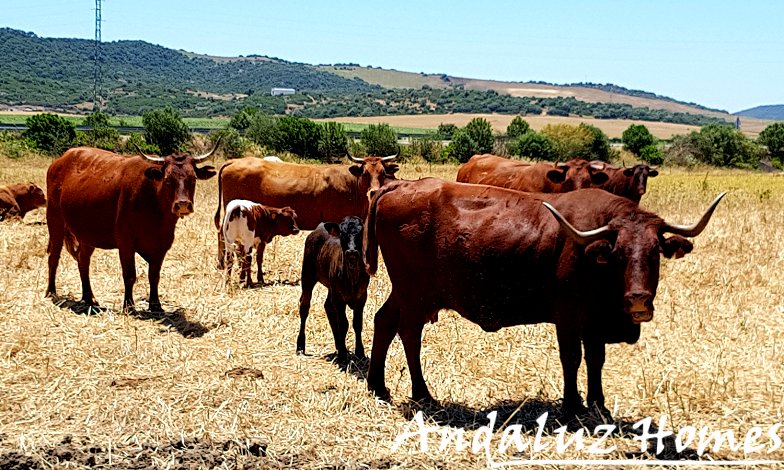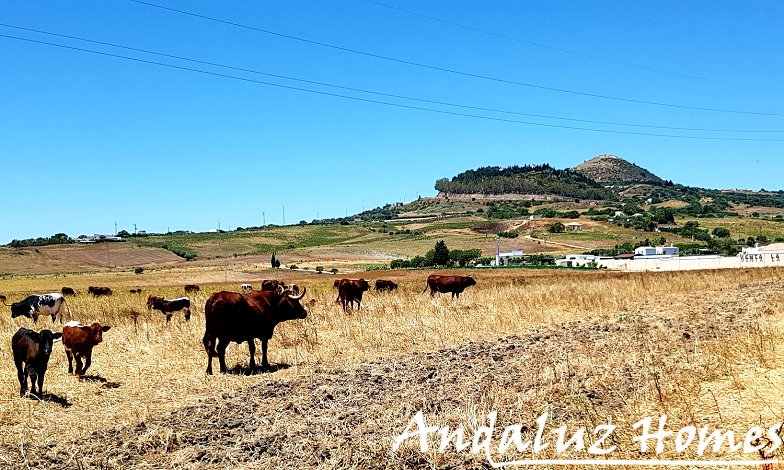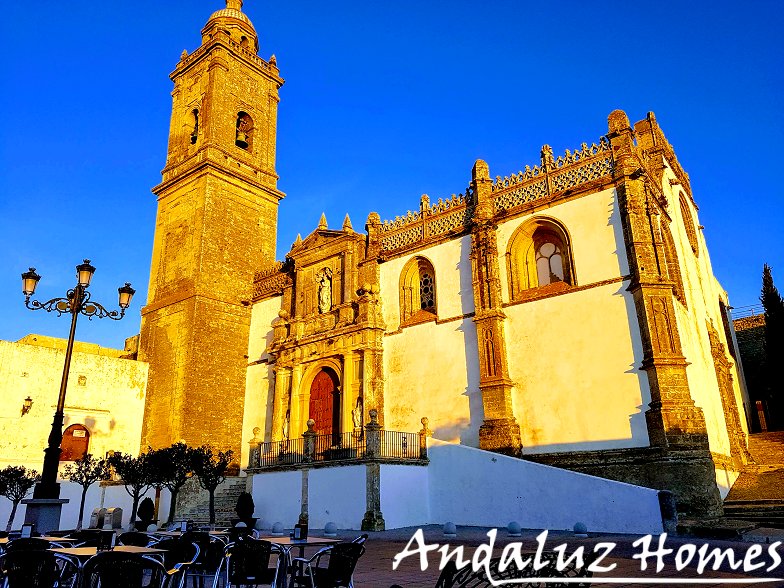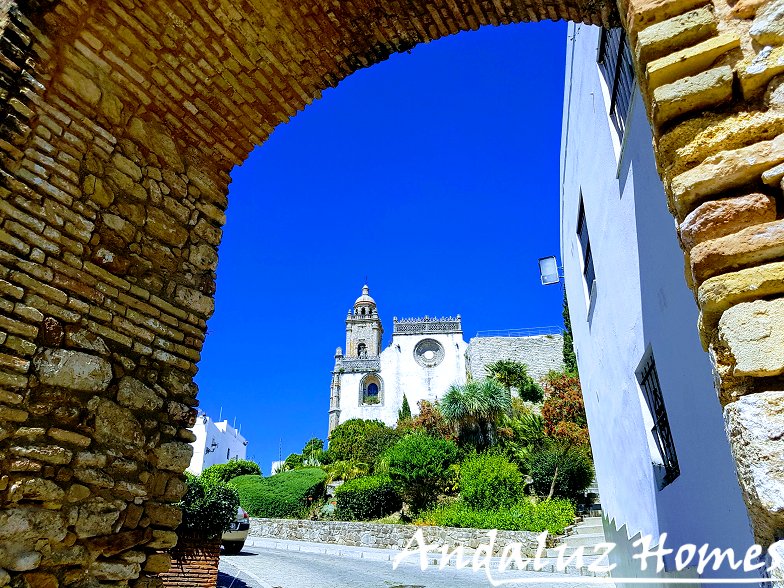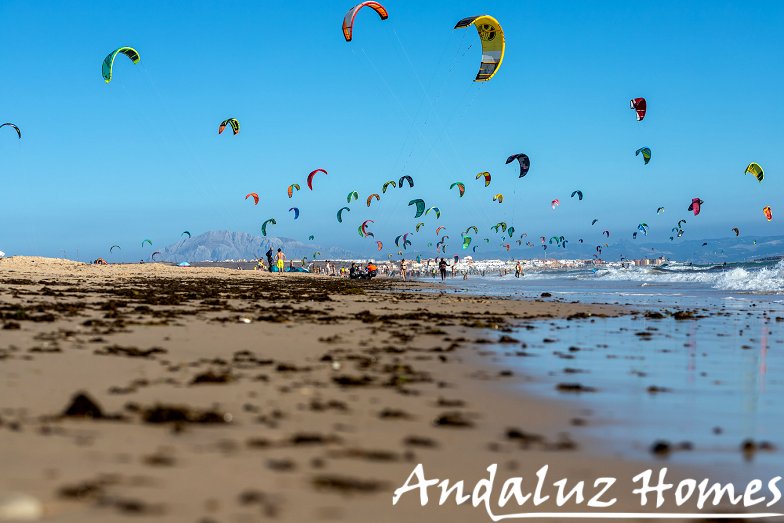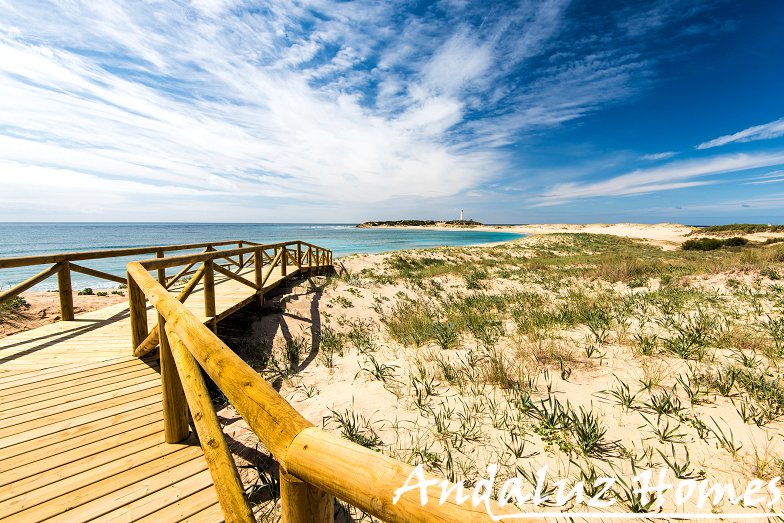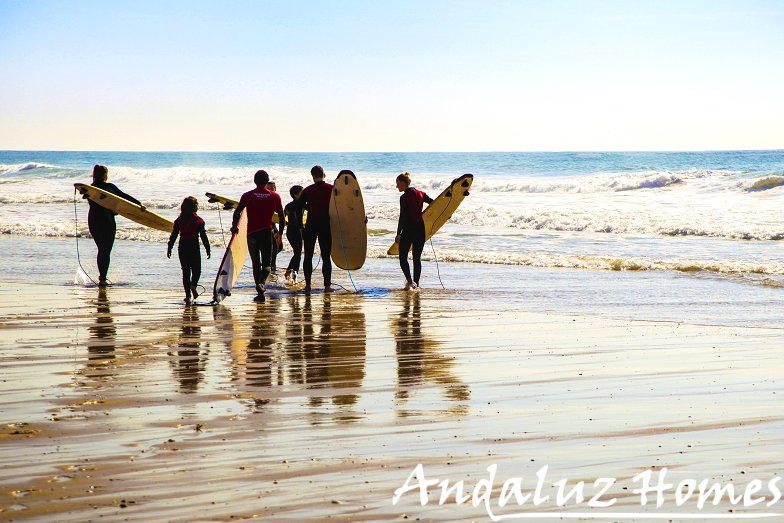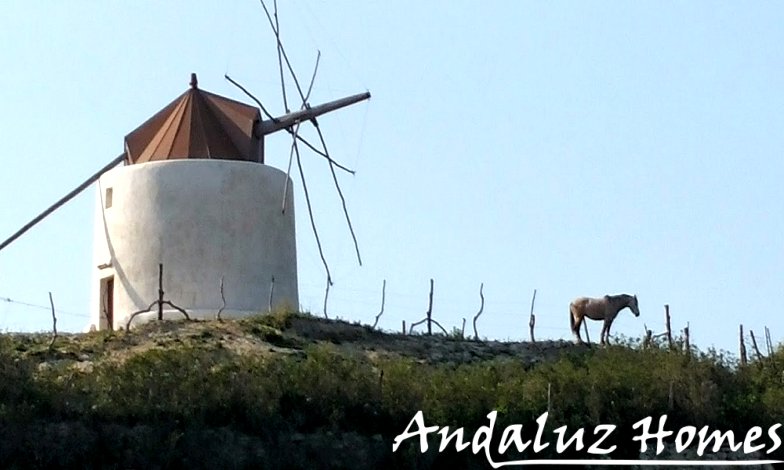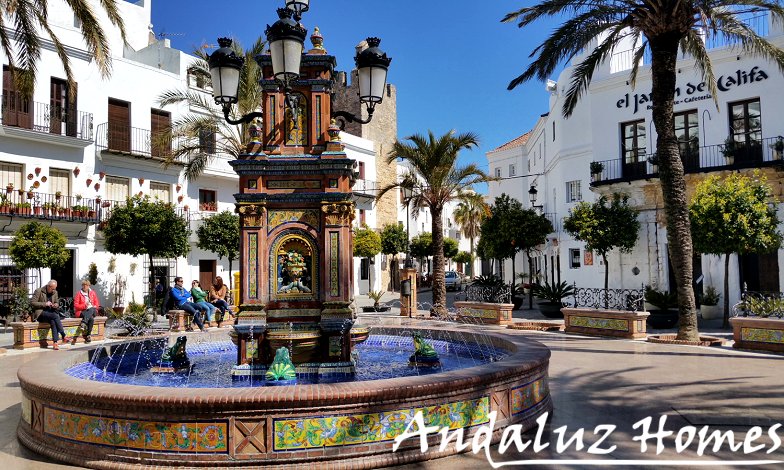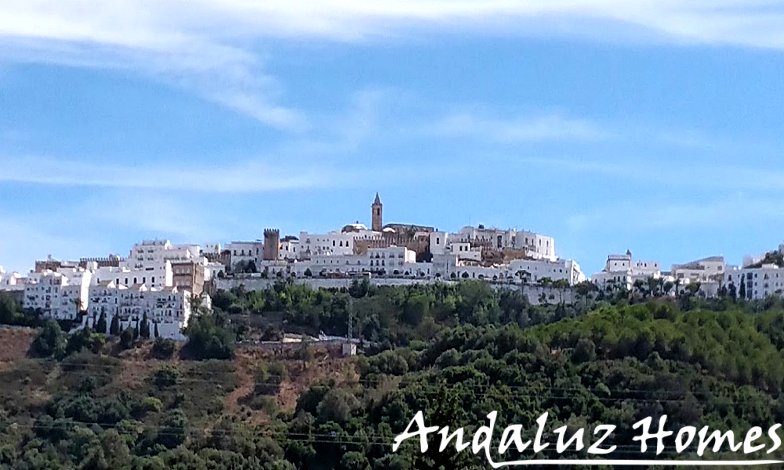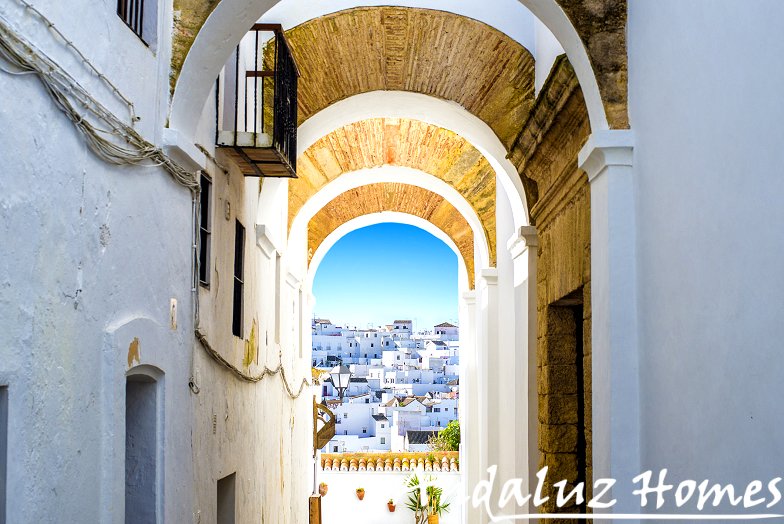The Costa de la Luz
Alcalá de los Gazules
One of the quintessential "pueblos blancos" (white villages), Alcalá de los Gazules is set high above the Alcornocales national park and is well situated to enjoy everything that the region of Cadiz has to offer, from majestic cities such as Sevilla and Granada, to the beautiful unspoilt beaches that make up the Costa de Luz coastline as well as the fantastic Sierras.
Its architecture, narrow winding streets, plazas and of course, the views out across the countryside make it the perfect destination for those looking for a traditional Spanish town. The locals are friendly and welcoming towards newcomers whether they choose the village for their holiday or as their home.
FAQ:
Population Alcala de los Gazules: 2016 - 5,316
Proximity to airports: Jerez de la Frontera 60 Km, Gibraltar 68 Km, Seville 143 Km, Malaga 176 Km
Arcos de la Frontera
Arcos de la Frontera is one of the largest inland hilltop white towns (Pueblos Blancos) in the Province of Cadiz. It stands proud perched on the edge of huge sand stone cliffs and its history dates right back to Neolithic times when man lived in caves. As with many of these pretty villages, Arcos evidences much unrest in its history, changing hands through the centuries including the Arabs, Romans and the Moors. This has resulted in a beautiful tapestry of cultures woven into the very fabric of its cool, character filled narrow streets and many historic buildings in and around the old city walls.
Arcos de la Frontera is most famous for its imposing Gothic Cathedral, built by Alfonso the Wise back in the late 13th century to mark his victory over the Moors and the restoration of the Christian faith within the town.
Today you will find a busy, thriving town full of shops, great restaurants and bars knitting together the old with the new. The picturesque Arcos Lake is at the foot of the town and attracts many cyclists wanting to enjoy a gentle ride around its perimeter and observe the wonderful flowers, trees and multitude of wildlife found on and around its banks. Arcos is approximately 40 minutes from the coast and its award winning beaches stretching from the City of Cadiz all the way to Gibraltar. Further inland there are the wild and wonderful nature reserves with their character cork trees and rustic shrub land great for walking amongst the wildlife.
Whether you are looking for a permanant residence or holiday destination Arcos de la Frontera has plenty to offer as a quality inland destination.
FAQ:
Population Arcos de la Frontera: 2016 - 34,211
Proximity to airports: Jerez de la Frontera 40 Km, Seville 94 Km, Gibraltar 119 Km, Malaga 178 Km
Benalup Casas Viejas
Benalup Casas Viejas is a quaint white village located between the Barbate marshlands, the Sierras de Cadiz and Alcornocales national park. Historically an important agricultural town albeit its history dates back to prehistoric times evidenced by its famous cave paintings “Tajos de los figuras” and tombs found within the hilltop caves overlooking the beautiful Celamin lakes. The town was steeped in controversy back in the 1930’s when a group of 22 anarchists were brutally killed in an uprising against the what was then state rule.
More recently people choose to live, visit or holiday safely in and around Benalup Casas Viejas due to its warm Andalusian welcome and its characterful residents. There is a good selection of local restaurants, bars and shops to choose from where you are easily able to purchase good quality local food and produce at affordable prices.
Benalup Casas Viejas is a popular migratory route for large number of birds, the Griffin Vulture, Stork, Egret and occasionally Imperial Eagle soar over the countryside surrounding the town and lakes.
The Benalup Golf and Country club has recently reopened its doors after a periood of refurbishment under new ownership. The hotel boasts two new restaraunts, indoor and outdoor swimming pools and a large spa/massage centre. In recent months the Celamin lake has teamed up with the Wakanalake organisation offering a large range of outdoor pursuits including Kayaking, climbing adventures and horse riding.
FAQ:
Population Benalup Casas Viejas 2016 - 7,003
Proximity to airports: Gibraltar 64 Km, Jerez de la Frontera 66 Km, Seville 148 Km, Malaga 173 Km
Cádiz
Cádiz city is one of the oldest cities in western Europe, accessed by a narrow stretch of land from the north and two bridges from the east. The city is steeped in naval history and was founded by the Phoenicians in cerca 1104 BC whereupon it was utilised as a trading post. Cádiz was heavily influenced by the Roman Empire in 200 BC whereupon the city quickly evolved as a port and Naval base. Christopher Columbus embarked on several journeys from Cádiz in the 16th century leading to the city becoming a favoured port of the Spanish treasure fleet - needless to say this meant that Cádiz was a popular target of its enemies looking to capture its prized treasures.
Today everyone can safely enjoy exploring the city's narrow streets and stunning plazas along with its wonderful architecture. The Plaza Mina, Espana and San Juan are a must see along with a visit to its famous Cathedral built in a High Baroque style..
Cádiz has a large bustling food market which boasts a wide range of fresh fish, meat and local produce all competitively priced and of excellent quality.
There are many excellent restaurants in Cádiz utilising local fresh produce to create culinary master pieces to feed the appetites of many. There are several Michelin star rated restaurants in the city albeit by the same token some fabulous small tapas bars.
The month of February is Carnival time in Cádiz, an important annual event with people travelling from all over Spain to enjoy the festivities and moreover the politically charged singing competitions.
Cruise ships arrive from a range of destinations into the port of Cádiz, with many of the day trippers vowing to return for a longer stay.
Transport links to Cadiz, regular train service via the national rail network RENFE the closest airport is at Jerez de la Frontera just a 40 minute train or car journey away.
FAQ:
Population Cadiz City 2016 - 118,919
Proximity to airports: Jerez de la Frontera 44 Km, Gibraltar 116 Km, Seville 128 Km, Malaga 227 Km
Caños de Meca
Canos de Meca is a small village right on the coast a mere stone's throw away from Cabo de Trafalgar and its beautiful white lighthouse. This is where the legendary Battle of Trafalgar was fought and won by Lord Admiral Nelson who paid the price with his own life way back in 1805. Today there is less canon fire and a much more chilled and relaxed feel to the place nestled in at the edge of the protected pine filled nature reserve of "La Brena". It was born out of a love of the sea and is famous for its perfect surfing conditions, especially in the winter months and therefore attracts a more bohemian clientele. The long street lined with houses, shops, restaurants and bars running parallel with its beautiful sandy beach really come to life during the summer months and has become a popular, trendy place for people live or to spend their holidays.
Canos de Meca attracts those with a more laid back approach to life, preferring to stretch out by the beach or become one with the waves by indulging in the many types of water-sports such as diving, surfing, kite and wind surfing which are particularly popular due to the strong easterly wind and a good swell. Its breathtaking scenery, alluring beaches, hypnotic waves and hippy culture make this a dream destination.
Chiclana de la Frontera
Chiclana de la Frontera lies in the south of the Bay of Cadiz and was founded in Phoenician times alongside the cities of Seville, Cadiz and Malaga some 3000 years ago. Its centuries long history, outstanding beaches rated as some of the best in Europe, never ending sunshine and wonderful wines make Chiclana de la Frontera a very popular holiday destination. Chiclana de la Frontera is part of the "ruta de vino", the wine route which links all of the local sherry producing towns with their popular bodegas.
Chiclana is famous for its natural beaches, particularly "Playa de la Barrosa" at 10km long and the slightly smaller "Playa de Sancti Petri" perched next to it on the coast. For this reason, this is the perfect sea side home or holiday destination for those who purely wish to indulge in relaxing on the beach, cooling down in the crystal clear Atlantic Ocean and soaking up the light bright sunshine the Costa de la Luz is named after (Coast of Light). Chiclana town and beach front are full of great restaurants, shops and bars and there is always something to do. For sporty types, there are many options to choose from including golf, tennis, kite -surfing, cycling, horse-riding....the list is endless.
For the more romantic amongst you, a gentle stroll along the beautiful beaches in the evening will reward you with some of the most breathtaking sunsets and perhaps you could stop off on the way at one of the award winning "chiringuitos" (beach bars) open in the summer months to sample a cool glass of local "fino" (sherry). Whatever you are looking for, Chiclana has everything you need and more.
FAQ:
Population Chiclana de la Frontera: 2016 - 84,680
Proximity to airports: Jerez de la Frontera 53 Km, Gibraltar 103 Km, Seville 136 Km, Malaga 214 Km
Conil de la Frontera
Conil de la Frontera is nestled neatly between the beautiful protected pine forests and the Atlantic Ocean right on the Coast which is renowned for its exceptional light quality attracting artists and inspiring writers alike. Conil is an historic fishing village and in the past its community survived through associated trades and working the surrounding fertile land. Conil is world famous for its tuna fishing and today still continues in this important fishing tradition during the early summer months (Almadraba)
Today, Conil's main industry is tourism but whilst growing in popularity, it has managed to maintain its historic charm, Andalucian authenticity and warm welcoming feel. Many different cultures such as the Arabs, Romans and Celts have passed through the streets over the centuries and have left their mark in the architecture particularly in the centre of the old town and its inner courtyards.
Those who have visited or who have chosen to live in Conil have been captured by its warmth, charm, outstanding beaches, cool narrow streets and culinary delights offered by the many quality restaurants and tapas bars. For the more adventurous amongst you, there are many activities to choose from such as surfing, wind surfing, cycling, walking or horse riding on the beach as the sun is setting. Whether looking for somewhere to live or spend your holidays, come and share in Spain's best kept secret destination and let it captivate your heart.
FAQ:
Population Conil de la Frontera 2016 - 22,495
Proximity to airports: Jerez de la Frontera 72 Km, Gibraltar 96 Km, Seville 156 Km, Malaga 207 Km
Conil de la Frontera (Roche)
Roche is one of the most exclusive residential areas in the Costa de la Luz and sits within a protected pine forest between Conil and Chiclana on the coast. Roche is dotted with luxury villas on private plots amongst the pine trees and is far away from the hustle and bustle of mass tourism making it a quiet, tranquil, natural environment in which to spend your holiday. Roche is quite unique as it benefits from a sheltered position and yet it is immediately adjacent to some of the most romantic coves , Calas de Roche with their sandy beaches. Tio Juan de Medina, Cala de Pato and Cala Encendida can be reached via steep stairs carved in the side of the cliffs. Fabulous beaches great for sunbathing and swimming in the sea as they are sheltered from the wind by the high cliffs and luscious, wild vegetation which include various aloes, shrubs and an abundance of rosemary, its subtle scent can be captured in the sea air.
El Puerto de Santa Maria
El Puerto de Santa Maria looks across the Bay of Cadiz towards Cadiz City. Its long sandy beaches, pretty port and the cultural centre of the old town draw many visitors from far and wide.
Jerez de la Frontera
Jerez de la Frontera is known as "the city of sherry, horses and flamenco". The sherry and fino's produced here in the numerous bodegas - Tio Pepe, Gonzales Byas, Lustau and Sandeman are world renowned. The chalky flats around Jerez de la Frontera with the high temperatures and shelter from the winds a little further inland make fabulous growing conditions for the grapes in order to produce the highest quality "fino".
The city itself offers plenty of history hidden in its pedestrian streets in the old town whilst the outer areas thrive with local businesses, large shopping malls and parks.
For those passionate about horses, the Royal Equestrian School , Escuala Andaluza del Arte Ecuestre is located here offering performances of the bond born from centuries of practiced horsemanship skills and traditions to create one of the most impressive horse shows in the world.
Jerez hides many gems in its streets including live Flamenco venues, antique shops and artezan produce. With its airport and train links, it makes it easy to reach and a good base from which to explore the area with the draw of the coast less than an hours drive away.
FAQ:
Population Jerez de la Frontera 2016 - 212,830
Proximity to airports: Jerez de la Frontera 12 Km, Gibraltar 111 Km, Seville 99 Km, Malaga 222 Km
Medina Sidonia
Medina Sidonia (Arabic for "City of Sidon") is known to be one of the oldest cities in Europe dating back to the Phoenician era around 400 BC. It is steeped in history spanning the centuries predominantly due to its commanding position high on the hilltop offering considerable military advantage with breathtaking panoramic views across the wild countryside and out towards the coast. Many different cultures fought and ruled Medina such as the Arabs, Romans and the Moors, each leaving an imprint in the architecture, streets and ancient city walls. Admiral Alonso Perez de Guzman was a well respected historic figure who was responsible for leading the Spanish Armada against the English in 1588. Medina Sidonia is less like a city in today's terms and more of a beautiful, quiet white village with its character cobbled streets lined with historic buildings and authentic decorative wrought iron windows and balconies known as "rejas". The Plaza Espana, directly in front of the impressive Town Hall buildings is lined with orange trees and is a delightful place to sit and enjoy the Spanish sunshine whilst eating tapas, sipping a cool glass of "fino" (local sherry) or freshly ground coffee from one of the many quality restaurants and bars on the edge of the square. Take a walk through the cool winding streets and enjoy the views all the way to the top where you will find the old castle ruins and nestled just below, the church of "Saint Marie the Crowned" with its authentic Andalucian architecture and quaint bell tower. Medina is a great place to live or spend your holiday. It is a perfect base from which to explore the local area including Jerez, famous for its sherry scented streets due to its many famous Bodegas such as Gonzalez-Byass (Tio Pepe) and Harvey's Bristol Cream, Cadiz "the imposing and historic City on the Sea, the Costa de la Luz (Coast of Light) and its many award winning beaches stretching from Cadiz all the way down to the surfers paradise of Tarifa and the untamed inland nature reserves of the 'Alcornocales' and La Brena" all within 30 mins drive. As if these were not enough, the romantic city of Seville is only an hour away, famous for its orange lined streets, flamenco dancing and many authentic tapas bars. One of Spains most photographed landmarks, the "Puente Nuevo" is found in Rhonda 1.5hrs away just over the Cadiz border into the Province of Malaga. It is over 200ft tall and spans the gorge linking the old and new town. Just a small step in from the coast to Medina Sidonia could open up all sorts of possibilities to you whether choosing the perfect place to live or in which to spend your holidays.
FAQ:
Population Medina Sidonia 2016 - 12,454
Proximity to airports: Jerez de la Frontera 45 Km, Gibraltar 84 Km, Seville 127 Km, Malaga 195 Km
Olvera
Coming soon
Vejer Costa
Vejer Costa - Including El Palmar, Zahora and Caños de Meca
Vejer de la Frontera
Vejer de la Frontera is one of the most beautiful and revered hill top "pueblos blancos" (white towns) in Andalucia. It attracts artists, musicians and those interested in history and culture. It has been recognised by Spain as "an historical artistic monument of national importance" and once you step into its cool, cobbled streets and marvel at your surroundings, you will understand why. Its history dates back to at least 400BC and it has changed hands over the centuries more times than a set of traffic lights on Piccadilly Circus! Vejer commands an enviable strategic position in terms of trade and defence and therefore, was a place of much unrest. It overlooks the sea at the mouth of the Gibraltar Straights, inland across the Barbate River and out across the beautiful Alcornocales Natural Park, full of character Cork Oaks and rich wildlife as one of Spain's most important nature reserves.
The Romans, Moors, Arabs and the French have all occupied Vejer over the years leaving subtle imprints of their culture knitted within the architecture and cuisine through the winding streets and ancient arches and up to the church, built on the site of the old mosque nestled at the top of town within the medieval quarter. Its panoramic views meant that many battles were observed at the foothills and out at sea including the Battle of Trafalgar when Lord Nelson defeated the French in the early 19th Century.
Nowadays you cannot hear cannon fire but you can certainly imagine what it would have been like as there is little evidence of the 20th century within its old walls or the "Plaza de Espana" other than some fantastic restaurants and bars in which to relax and enjoy tapas whilst sipping a cool glass of "fino" (sherry).
Who could resist the peaceful charm of Vejer? Aan ideal location for you to live or spend your holidays with its moderate year round climate and only 10 minutes by car to some of the coasts most seductive sandy beaches such as El Palmar.
FAQ:
Population Vejer de la Frontera 2016 - 12,812
Proximity to airports: Jerez de la Frontera 86 Km, Gibraltar 87 Km, Seville 160 Km, Malaga 198 Km
Zahara de los Atunes
Coming soon

